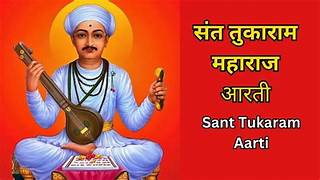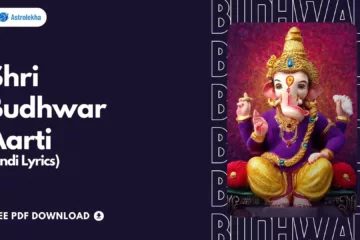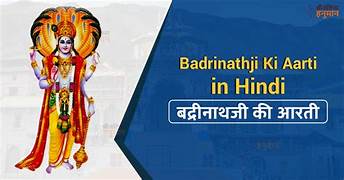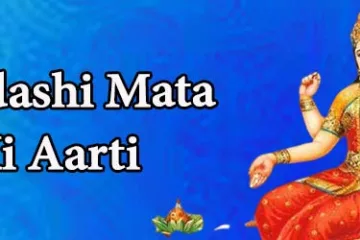Importance and benefits of Sant Tukaram Aarti

Introduction
Saint Tukaram was born in 1608 in Dehu village of Maharashtra. He belonged to an ordinary family and had a small shop to earn his livelihood. However, his life was full of difficulties. He faced continuous failures in his business, causing huge financial losses. He also lost his son. In these difficult times, Saint Tukaram became deeply immersed in his devotion towards Lord Vitthal. He dedicated all his sorrow to God and prayed to Him for guidance. His devotion was so strong that Lord Vitthal blessed him and granted him spiritual knowledge. Saint Tukaram expressed his experiences and love for Lord Vitthal in his hymns. His hymns were written in simple Marathi language Tukaram Aarti and contained sentiments of devotion, surrender and love of God. These hymns are still an integral part of the culture of Maharashtra and are sung by devotees across the world.
Sant Tukaram Aarti Recitation
आरती तुकाराम ।
स्वामी सद्गुरु धाम ॥
सच्चिदानंद मूर्ती ।
पाय दाखवी आम्हा ॥आरती तुकाराम ।
स्वामी सद्गुरु धाम ॥
सच्चिदानंद मूर्ती ।
पाय दाखवी आम्हा ॥
राघवे सागरात ।
पाषाण तारीले ॥
तैसे हें तुकोबाचे ।
अभंग उदकी रक्षिले ॥
आरती तुकाराम ॥
आरती तुकाराम ।
स्वामी सद्गुरु धाम ॥
सच्चिदानंद मूर्ती ।
पाय दाखवी आम्हा ॥
तुकिता तुलनेसी ।
ब्रह्म तुकासी आले ॥
म्हणोनि रामेश्वरे ।
चरणी मस्तक ठेविले ॥
आरती तुकाराम ।
स्वामी सद्गुरु धाम ॥
सच्चिदानंद मूर्ती ।
पाय दाखवी आम्हा ॥
आरती तुकाराम ।
स्वामी सद्गुरु धाम ॥
सच्चिदानंद मूर्ती ।
पाय दाखवी आम्हा ॥
Benefits of Sant Tukaram Aarti
Performing Sant Tukaram Aarti with devotion to Lord Vitthal brings many benefits to the devotees, which include:
- Peace of mind: Performing Aarti makes the mind calm and concentrated. The words of Saint Tukaram, filled with the spirit of devotion, remove worries and fears.
- Happiness and Prosperity: It is believed that devotees who perform Sant Tukaram Aarti attain happiness, prosperity and good fortune.
- Divine Protection: By chanting Sant Tukaram Aarti, devotees receive the blessings of Lord Vitthal, who protects them from all evil and obstacles.
- Attainment of Moksha: It is believed that Saint Tukaram Aarti helps in developing a feeling of dedication and devotion towards Lord Vitthal, which ultimately leads to salvation.
Story related to Saint Tukaram
It is say that once Lord Vitthal was so please after listening to the hymns of Saint Tukaram that he came from Pandharpur to Dehu and participated in the Kirtan with him. This story depicts the close bond between Lord Vitthal and devotee Tukaram.
(FAQs)
1. At what time should Aarti be performed?
- Sant Tukaram Aarti can be performed at any auspicious time, morning or evening. However, many devotees prefer to perform aarti in the evening.
2. Should I perform Aarti in Marathi only?
- If you are not well acquainted with Marathi, you can translate the aarti into your mother tongue. However, the original Marathi text of the aarti has a special rhythm and poetic beauty. Try to perform the aarti in original Marathi if you understand the meaning of the words.
3. Apart from Sant Tukaram Aarti, what are other mantras which I can do for daily puja?
- You can also include these other mantras of Lord Vitthal in your daily worship:
- Vitthal Vitthal Jai Hari Vitthal
- Invocation and Obeisance to Lord Krishna
4. Are there resources from which I can learn more about Saint Tukaram?
- Yes, there are many books, websites and other resources that give more information about the life and hymns of Saint Tukaram.
Conclusion
Sant Tukaram Aarti is a beautiful and powerful way to praise Lord Vitthal and seek his blessings. By regular chanting of this aarti one can create a feeling of peace, prosperity and spiritual progress.
Do you want to experience the power of Sant Tukaram Aarti in your life? Why not start chanting this Aarti from today itself and feel the positive changes in your life!



0 टिप्पणियाँ